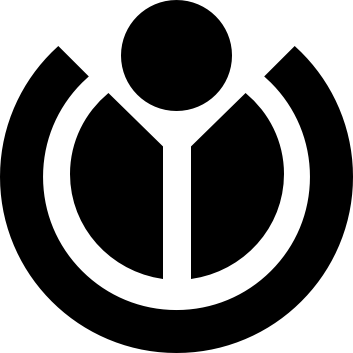
At Wikimedia UK’s 2019 Annual General Meeting on Saturday we awarded our prizes for Wikimedian and Partnership of the Year. These awards recognise people and projects which have made a significant impact on the Wikimedia projects and community over the last year.
Wikimedian of the Year
Winner: Dr Jess Wade

With her persistent work Dr. Jess Wade is helping to close the gender gap in biographies on Wikipedia. She launched a project that has made women in science visible by creating over 200 articles in one year on prominent women in STEM. These efforts have inspired others to do the same in science and other disciplines, creating gender parity and representation on Wikipedia.
Beyond her editorial work she has also made important contributions to the public conversation about Wikipedia and how it reflects society’s biases and blindspots.
Honorable mention: Andrew Gray

Andrew’s work on the project he established, Wikidata:WikiProject British Politicians has been extensive and valuable.
It’s a great example of the value of quietly working on improving the quality and quantity of data in a particular area. It showed what can be produced in terms of research value and the process of developing workable, scalable schema for a set of people going back to 1386.
Further, the presentation of, and the showcase queries for the project have been extremely useful: from fairly functional queries like “all parliamentary terms of a single person” to more obscure ones like “MPs with identified mythical ancestors”. This has been very useful in Wikimedia UK’s advocacy work on releasing data and showing its value.
Partnership of the Year
Winner: Amnesty International
As a result of the relationship built over the years with Amnesty International (who keynoted at our London Wikimania in 2014) and a growing volunteer network, last year we worked together on an international initiative focusing on editathons about human rights activists and other human rights issues.
In June 2018 we took park in Amnesty International’s BRAVE campaign focusing on Women Human Rights Defenders. The international volunteer bases of both movements were combined to create content on human rights in multiple languages. We engaged with Wikimedia affiliates across the world, while Amnesty drew on their county sections. Each section determined its own content locally, working on content relevant and most pressing for them.
This project was an opportunity for the global Wikimedia community to work with the leading human rights charity in their own location, and an opportunity to raise awareness and produce some great content across the Wikimedia projects. As a result, 450 articles were expanded and 100 created, 23 affiliates were connected to their local Amnesty groups and some have continued to collaborate, articles were created in at least seven languages, and we have built capacity at a local level for Amnesty staff and volunteers to continue contributing to Wikipedia.
Honourable Mention: Dumfries Stonecarving project

The Dumfries Stonecarving Project is a year-long, National Heritage Lottery Funded project led by the Dumfries Historic Buildings Trust which began August 2018. The project celebrates the sandstone heritage of Dumfries, from local quarries to carved gargoyles. Project outputs have included week-long stonecarving courses for young people, stonecarving ‘taster sessions’ for all ages, archival research and oral histories, and guided ‘stonecarving quests’ in the town centre.
Building on previous Wikimedia partnerships between Dr Sara Thomas and Dr tara S Beall dating from 2015 onwards, the Wikimedia element of the project was built in from the very beginning, involving the delivery of Wikimedia Commons training sessions to local volunteers. Specifically, this involved engaging local photography groups, who uploaded high quality pictures of local stonecarving – many involving listed buildings – which can and have then been used in Wikipedia articles. A number of pictures were entered into Wiki Loves Monuments 2018. Two rounds of training sessions have already taken place, with an additional round planned for the end of July. This final round will also include a Wikipedia editathon, where the findings from archival research will be used to improve relevant Wikipedia articles.
The success of these projects was the basis of a paper, written by Drs Thomas & Beall, which was delivered at the recent HeritageDot conference, and which focused on the ability of Wikimedia projects to ensure considerable impact and longevity for the outputs of community heritage projects.
Wikimedia UK would like to thank the winners of Wikimedian and Partnership of the year, along with the honourable mentions, for making outstanding contributions to the Wikimedia movement and helping us at the chapter have such a great year.







